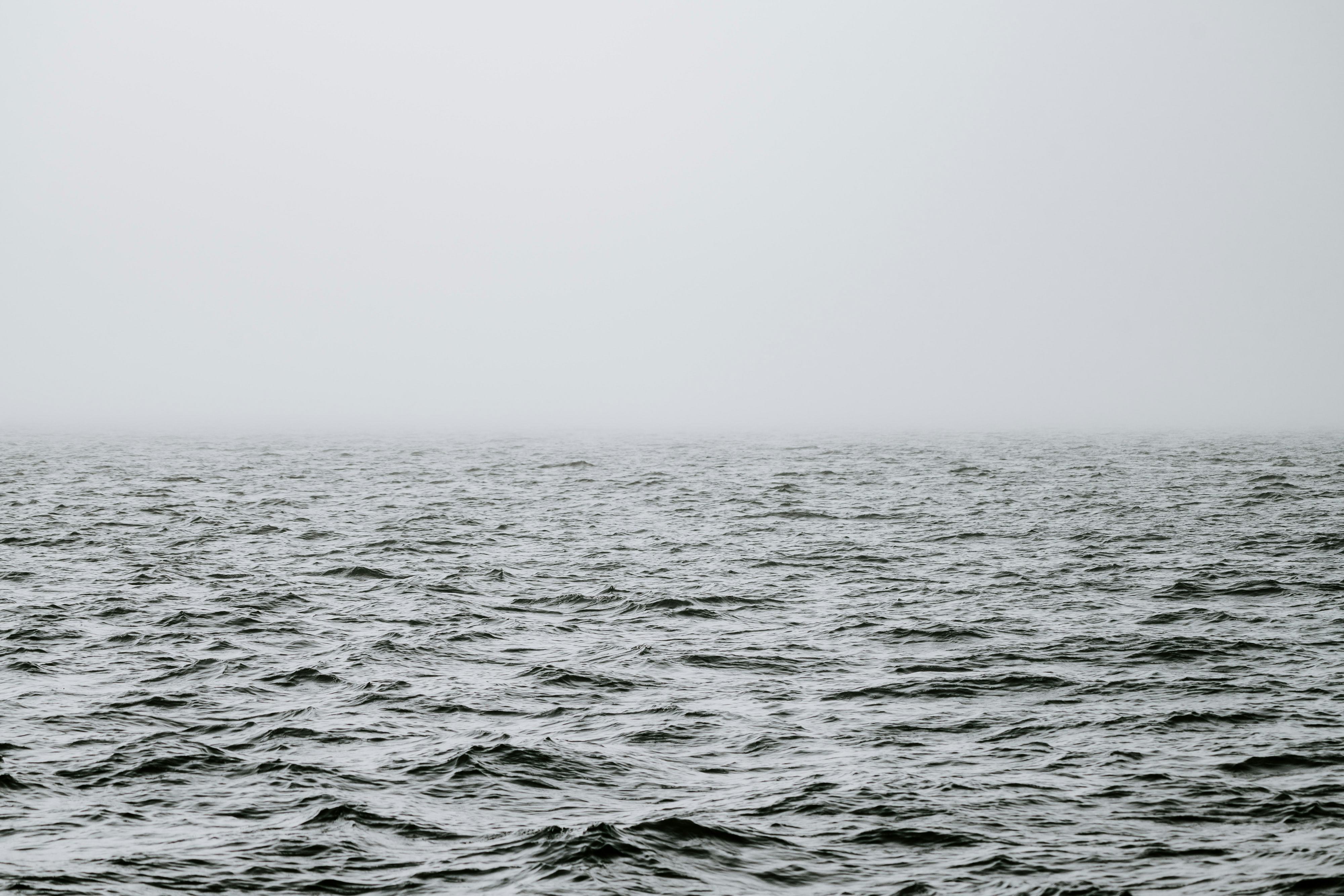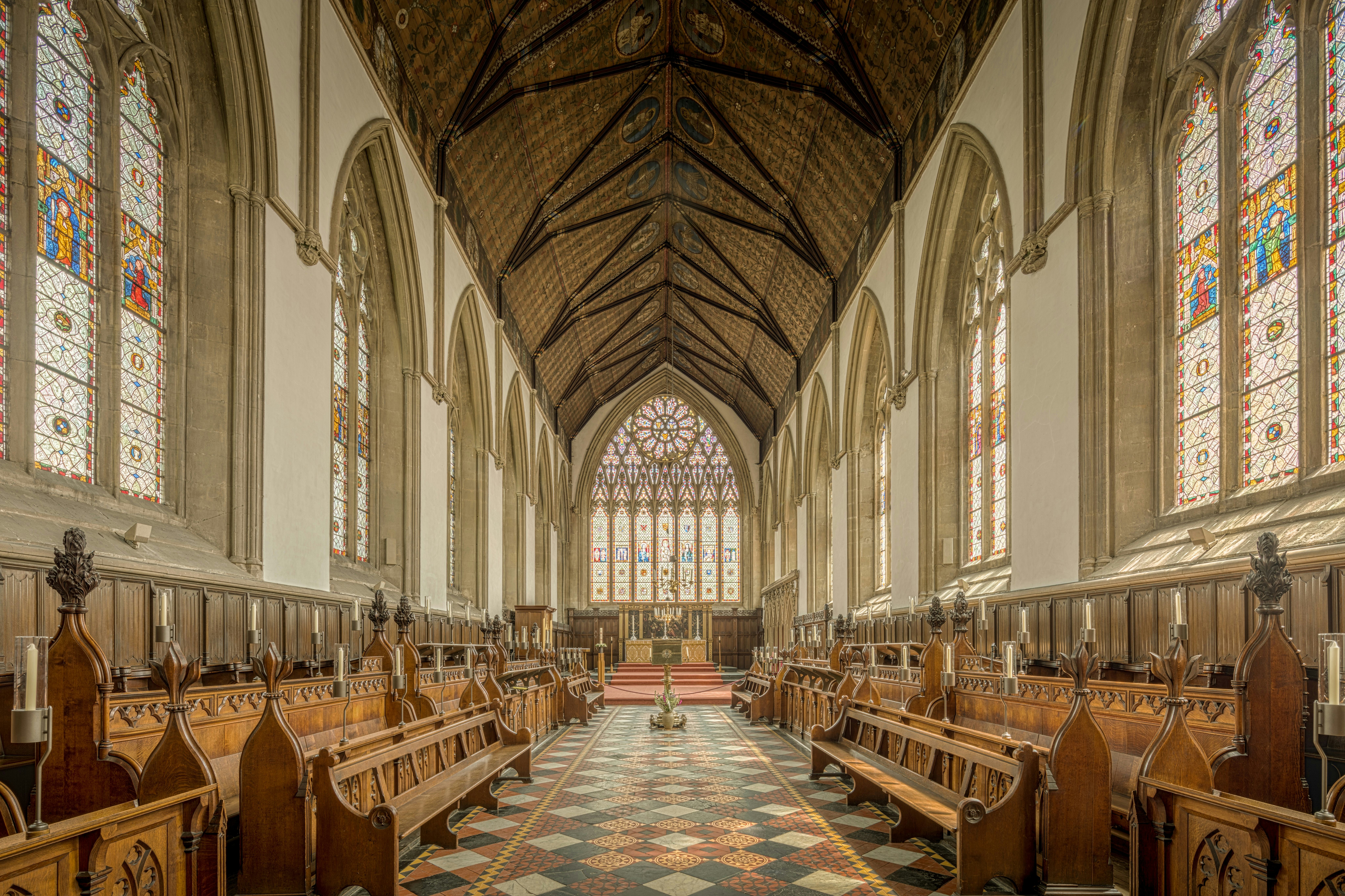When I was younger, the concept of “faith” didn’t make much sense to me. I grew up in Australia, where religion is not part of public life or much spoken about. My parents were raised Anglican, but when the topic of religion came up they would say things like “I wouldn’t get involved in that,” and change the subject. Faith meant little to me, beyond some associations with people in churches and people on the street holding signs about Jesus and the end of the world.
However, I grew up being curious about existential questions: What is life? What are we doing here on Earth? I remember one sleepover with a friend in primary school, whose family were Christians from Southern India. We talked for hours about whether God exists, whether you can travel back in time, and the possibility of life being a giant computer program.
When I got to university, I studied neuroscience because I felt that the brain was one of the most interesting mysteries. The fact that the brain emerged over time in evolution, and emerges just from nutrients and genetic code in the womb, was and still is amazing to me. I felt that neuroscience was a way to explore existential questions, in the modern day, in the way that people in the Middle Ages explored those questions through theology.
Throughout this period of my life, I didn’t have much contact with religion. I was studying at the University of Melbourne, whose secular Scottish founders specified that no theology would ever be taught there (though, intriguingly, they put an angel in the center of the university coat of arms). There was one time I met people who advocated faith. I was coming out of the university library one evening, walking into the warm summer air after studying cell biology with friends. Some students had set up a table outside, and they offered me a hot chocolate and a conversation about religion. We talked for a while, but all I remember is that, at some point, they told me about the apocalypse and the coming of “the beast” which would signify the end times. I asked them how they ended up believing this, and they answered, “faith,” which to me, was the equivalent of saying “for no reason.”
Despite encounters like this, I was intrigued by religion. Religious people were, in fact, in the same territory that interested me. They were struggling with the existential questions of life. Even if their answers were somewhat bizarre to me, I did often wonder how people had gotten to the point of believing those things. I talked with my Scottish, atheist friend about what someone like St. Augustine really thought. Augustine was a thoughtful person with a desire to find the truth, so when he wrote words like “God” and the “Trinity,” what did he really mean by that? What was in his head when he was writing those words?
This background curiosity came to the fore when I started graduate school at the University of Oxford a few years later. I was initially enrolled in cognitive anthropology. The magical reputation and environment of Oxford had raised my expectations. I felt that, in Oxford, one would begin a journey into the meaning of life. Oxford was the place where the existential questions could be investigated, as monks and scholars had done for hundreds of years, sheltered and inspired by the same beautiful buildings.
My experience, at first, was disappointing. The first anthropology lecture was in a drab modern building. The lecturer—an uninspired guy wearing an old t-shirt—did not begin by saying: “Welcome to Oxford. Here we will explore the nature of humanity.” He instead opened with a deep dive into departmental policies and fire safety regulations. Personally, I felt it would be fine if this particular building burnt down. I stood up in the middle of the lecture and left; this was not the person I wanted to learn from.
I wondered about possibly studying theology. I can’t remember how the idea drifted into my head, but when it did, I felt that it made complete sense. If anywhere, Oxford would be the place to study theology—the founding subject of the university back in the Middle Ages. This might be a way to investigate some of those big questions, to find out what people like Augustine really thought about life and consciousness. When I filled out the paperwork to change my course, I told the academic registrar, “I’m going looking for God.” She said “Well, I hope you find Him.”
I emailed a professor in the Faculty of Theology—the Regius Professor of Moral and Pastoral Theology—and went to meet him at his office in Christ Church college. The experience, perhaps unsurprisingly, felt religious. I walked into this beautiful, august college quadrangle, past a fountain of Mercury, the messenger of the gods, and knocked on a large old wooden door. I was greeted by the tall professor who stood surrounded by light, pouring in from windows down the corridor behind him, illuminating an elegant staircase in a hall that seemed to have no ceiling. He said, “do come in.”
It was the opposite of the disappointing first day of anthropology. I felt that meeting with the professor might actually be the beginning of a journey into the mystery of life.
I looked at some of the spines on the books in his library. They covered an extraordinary and exciting range of subjects: love, war, death, beauty, the ethics of spies, the virtues of conversation, the theology of waiting, the history of philosophy, Nietzsche’s thought, natural rights, democracy, modernism, and one book I pulled out called “Finite and Infinite Goods.” I felt that this was absolutely where I wanted to study.
Over the years that followed, I learned a lot and experienced many beautiful and even transformational moments, in different chapels and religious spaces around Oxford. One of the most satisfying things for me though is having figured out for myself the idea behind that nebulous and once somewhat irritating word “faith.” It now really does make sense to me, as a concept. If I were to explain faith to a science-focused atheist—like my former self—I think I could persuade him that he is missing something.
So, what is faith, to me?
It is simply the trust that someone has seen more than you. Consider how a biologist experiences a forest, versus how I experience it. Where I would see “a leaf” they might see an unusual plant for this elevation which suggests a decade-long shift in the climate, and invisible changes under our feet from clay to aerated soil. The biologist sees a whole world that I do not experience. They have got to this point through years of training, reflection, and experience—shaping their brain in a certain way.
When we talk about deep, important things, we tend to forget the journey required to explore and understand them. The assumption we inherit from the Enlightenment is that everything should be quickly and easily explicable through argument. If someone says something like, “beauty, on a deep level, is what matters most,” or “I believe in God,” we ask them to explain what they mean. This request appears reasonable, but we forget the difficulty of what we are asking them to do with words. Words, in some ways, are not a great tool. They mean different things to different people, they change over time, listeners get impatient. Words are soundwaves or font which aim to trigger mental images and thoughts in people’s diverse and unpredictable minds. The request then, is really: “using only soundwaves, ideally in under one minute or so, create in my mind a completely new thing which I am entirely happy with and which makes total sense to me.” Many things that matter to us don’t get into our mind just by someone saying words. It’s always a longer journey.
This is where faith fits in. Religion is always based around some individuals and what they have seen. If it’s true that some lives—in Christianity, Jesus Christ—carry the person much further into seeing the nature of things, such people would have the experience of seeing more than many others. But then, when they try to explain that to others, it makes sense that this would not be easy. Because they didn’t get there just through explanation. They got to see what they could see via a whole series of experiences which shaped them and enhanced their ability to see or understand.
This is true for all the other figures of Christianity, too: Mary Magdalene, the writers of the Gospels, St. Paul, the Prophets of the Old Testament, and all the saints and mystics. They were all able to see things which are deep and important about the world, but which are hard to communicate. It’s like the “Allegory of the Cave” in Plato’s Republic, in which one person breaks out of the cave of shadows, where everyone is living, and gets to see the sun. When they return, though, they have a hard time telling everyone about it. Describing the sun with words, when no one has ever seen the sun before, can never match up to seeing it.
The best thing they could say—even though it’s still kind of inadequate—is, firstly, “please just trust me,” and secondly, “let me show you the way so that you can see it for yourself.” This is what Jesus always talked about: have faith, and let me show you the way. St. Thomas Aquinas also said that all his books were written just as scaffolding, for someone to be able to climb up to see the eternal light. What keeps one going is faith: the trust that there is a larger spiritual reality to be known. You can’t know until you find out, and the only way to find out is the journey: the long effort to shape one’s brain—one’s whole self—over time, in an attempt to see more. That is what all the “scaffolding” of religion is for—the prayers, the architecture, the music, the allegories, the symbols. They are supposed to be aides to shaping oneself to be able to see more of what other people have seen, or glimpsed, before us.
I think my experiences in Oxford converted me. They also taught me, though, that conversion is not what I thought it was. It is not a transformation from unknowing to knowing. It is in some ways a more minor shift: from thinking that faith makes no sense, to thinking that religion might be onto something. From thinking that the people talking about “the beast” with their hot chocolate sum up what religion has to offer… to thinking that the saints and spiritual explorers found things that were not easy to share with others. It’s about having the humility to know that we don’t know, but that we hope we’re on a good path to learning more and opening our eyes further.
Like most people, I didn’t receive any major revelation or reckoning. I just got glimpses of beauty, and a sense that others have explored bigger worlds beyond the limits of my consciousness.
Faith is the trust that all the glimpses you have seen add up to a bigger, more coherent whole. That little bits of beauty belong to an eternal beauty. That it may not be given to us to see it all, but, as T.S. Eliot wrote, we can see “the light that fractures through unquiet water.” And that this is a starting point for a journey of exploration.
Jack Fuller holds a doctorate in Theology and Ethics from the University of Oxford, where he studied on a Rhodes Scholarship, and an undergraduate degree in Neuroscience from the University of Melbourne. He is the author of The Imagination Machine: How to Spark New Ideas to Create Your Company's Future and is training to be a psychotherapist.
Discover more from Jack Fuller.









